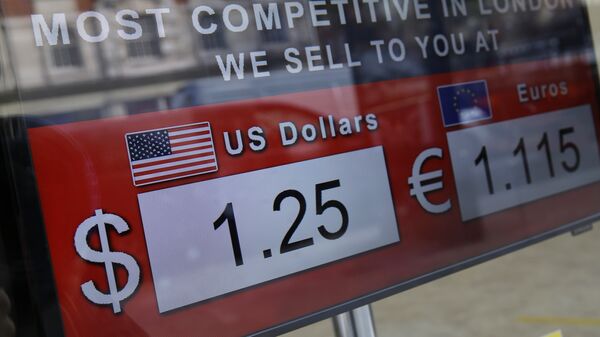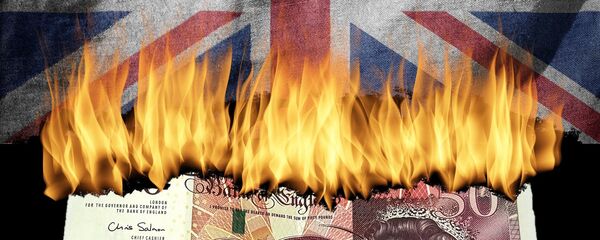The pound’s slide from just below $1.30 on Monday to as low as $1.18 in the early hours of Monday with a subsequent rebound to $1.24, while failing to trigger a currency market panic, will position the UK’s domestic industries as more competitive in the domestic market, boost the nation’s export potential and contribute to accelerated inflation in the longer-term. Amidst rife discussion of a recession possibly looming in the UK, a more interesting aspect of the sterling’s slump in the morning hours on Friday is purely technical.
Randall points out that the pound sterling interbank trading volumes were roughly equal in scale to those seen on 14 July, when the Bank of England (BOE) stood pat on interest rates instead of undertaking a widely expected cut from 0.5pc to 0.25pc (which came about only a month later, coinciding with a set of upbeat macroeconomic data, the first reflection of the post-Brexit economic dynamics). However, the pound moved against the dollar within a 10pc range on Friday.
The investors, concerned with the possible downside effects of a “hard Brexit” on the UK’s foreign trade, were more active overnight, with the price difference between the pound and the US dollar, typically within the range of 1-2 basis points, having spiked to surpass the threshold of 50 basis points to as much as 600 basis points when the rate crashed to $1.14 for a second. The basis points discrepancy, however, had suggested an exchange rate of $1.2450-$1.25, where the pound settled eventually, but how can one explain the brief drop below that level?
Lack of immediate access to liquidity might be one explanation. A huge buy/sell spread, adding to the liquidity shortage, is another.
"We net overall buying interest of GBP, mainly from the leveraged segment. As we can see, execution technique is key, blunt aggression into the market can cause large impact, but if one spaces out orders and treats liquidity appropriately, then one can achieve a reasonable execution," Citibank said.
In other words, the heavily-indebted market participants panicked, attempting to minimize their losses as they had the potential to undermine their solvency. The broader market moved rather calmly, as the ‘hard Brexit’ had long been priced into net currency positions. With all that said, the economic overhaul the UK is heading for, and a likely shift to supply-side economics will continue to hurt the spenders and the indebted, benefitting savers and profitable enterprises.
Such a conclusion gains further support from the UK governmental bond, or gilt, yield dynamics in the wake of the currency selloff. With the 10-year yield rising 1pc and prices index expectations advancing to their 30-year highest, the value of debt dropped.
The case of the pound bloodbath provides, therefore, a proper case study for a shift to supply-side economics amid the present conditions: borrowers beware.






